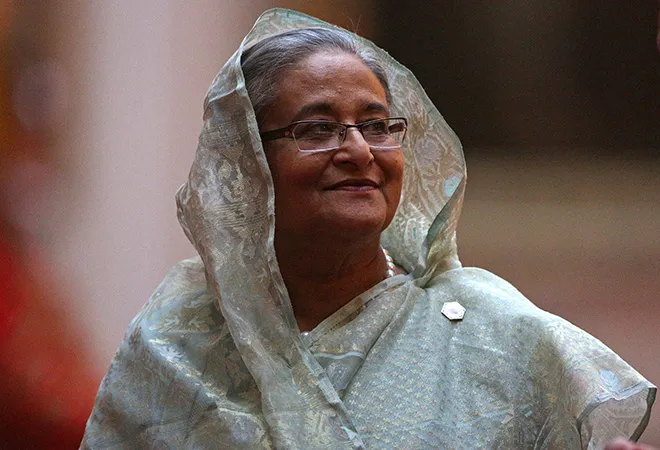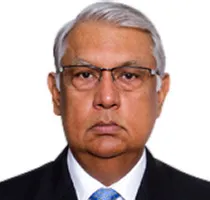-
CENTRES
Progammes & Centres
Location
By the standards of electoral practices in South Asia, incidents of violence in Bangladesh’s elections cannot be viewed as excessive. The allegations of malpractices cannot be dismissed outright since no election in Bangladesh has been free from these aberrations and violence.

The Prime Minister Sheikh Hasina-led Awami League (AL) delivered a crushing defeat to the opposition National Unity Front (NUF) in Bangladesh’s general election. With 288 seats in her kitty, in a 300-seat directly contested unicameral Parliament, Hasina is set for a record third consecutive term. Former president HM Ershad’s Jatiyo Party got 20 seats and the NUF came in a distant third with seven seats and will probably not break the double-digit mark.
Controversy has dogged Hasina’s electoral triumph. The NUF leader and former AL stalwart, 82-year old eminent jurist Kamal Hossian, has called the election “farcical” and demanded the results be annulled and fresh polls held under a neutral caretaker government. Allegations of rigging, harassment and intimidation of opposition candidates and voters, arbitrary arrests and suppression of dissent have been levelled against the AL government. International observers, including those from SAARC, OIC and India, however, put the stamp of credibility on the election. By the standards of electoral practices in South Asia, incidents of violence in Bangladesh’s elections cannot be viewed as excessive.
The allegations of malpractices cannot be dismissed outright since no election in Bangladesh has been free from these aberrations and violence. As a diplomat serving in the Indian high commission in Dhaka, I personally witnessed violence unleashed by cadres of the Bangladesh Nationalist Party (BNP) and its ally, the Jamaat-e-Islami (JeI) during the campaign leading up to the 2001 election and in the aftermath of the victory of this coalition. The Hindu minority bore the brunt of the violence. Muscle power and violence are endemic to politics in Bangladesh.
This election marked the coming of age of a new generation in Bangladesh that is tired of the old political discourse pitting the “secular” AL against the pro-Islamist BNP and JeI. This divide represented the so-called India-friendly AL with the nationalist, pro-Islamic and pro-Pakistani mindset. This generation has also experienced with extreme distaste the utter misrule of the BNP-JeI government during 2001-06, marked by unprecedented corruption, religion-inspired terror organisations and marginalisation of Hindus.
Bangladesh-India relations reached a nadir, a situation unwelcome to the vast majority of Bangladeshis who desire friendly ties. What really galled most Bangladeshis was the sight of JeI and BNP war criminals and collaborators of the genocide perpetrated by the Pakistan Army in the Liberation War of 1971 enjoying the fruits of power. This sentiment manifested itself in the outpouring of support for the War Crimes Tribunal and the conviction and execution of JeI leaders, including those who were ministers in the BNP-JeI coalition government.
The architect of the BNP-JeI misrule was Tarique Zia, elder son of then premier Khaleda Zia, who languishes in jail for corruption as her son cools his heels in the London suburb of Kingston, having fled on getting bail in several cases in 2008. Tarique got political asylum in the UK, famous for giving refuge to all kinds of dubious figures, including fraudsters from India and other South Asian countries. Like his mother, Tarique has been convicted and sentenced to prison for money laundering and conspiracy to murder AL leaders.
Prime Minister Narendra Modi has been quick off the mark and was the first to telephone and congratulate Hasina. There will be quiet satisfaction in New Delhi that Hasina is back in the saddle. Bangladesh-India ties will receive a further boost based on the continuity that her government will provide. Her coming back to power will enhance closer ties that India has sought to promote with Bangladesh as an important neighbour which has a pivotal role in India’s “Act East” policy and development of India’s northeastern states.
This commentary originally appeared in Hindustan Times.
The views expressed above belong to the author(s). ORF research and analyses now available on Telegram! Click here to access our curated content — blogs, longforms and interviews.

Pinak Chakravarty was a Visiting Fellow with ORF's Regional Studies Initiative where he oversees the West Asia Initiative Bangladesh and selected ASEAN-related issues. He joined ...
Read More +